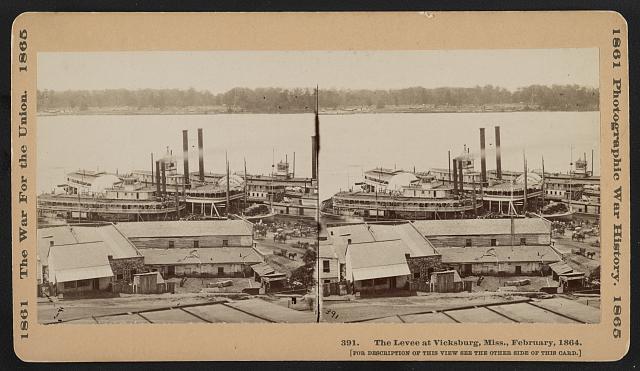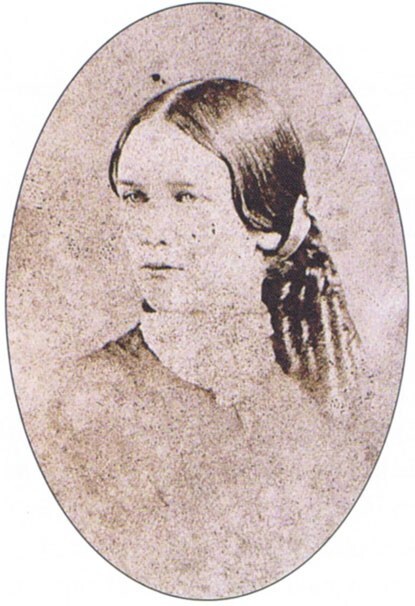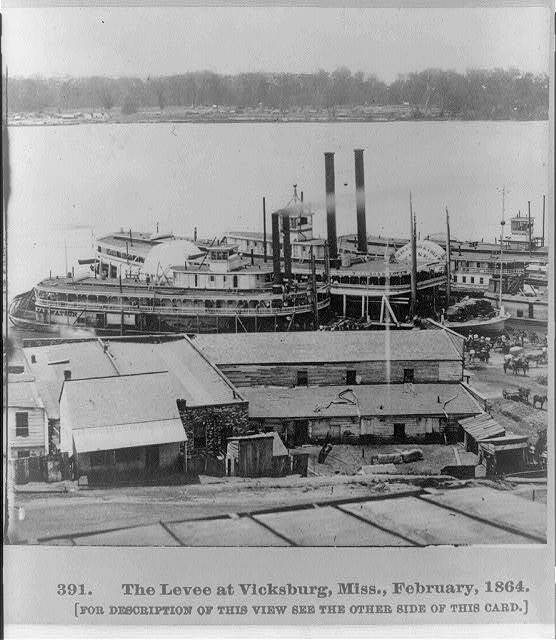Vicksburg, Mississippi's Shirley Family
Another excellent case of Unionists within Mississippi was the Shirley family from Vicksburg. The Shirley’s shared many of the same background characteristics of the Natchez Nabobs. James Shirley and his second wife Adeline were both born in Massachusetts. James went to law school at elite Dartmouth College. He met Adeline in Georgia, and they eventually moved to Vicksburg. Adeline came from a wealthy “Boston Brahmin” family (the Quincy’s), and she was also highly educated. By the time of the Civil War, Adeline and James had three children: Frederick, Alice and Quincy. James sold real estate, practiced law and served as a judge in Vicksburg. The family ran a moderate-sized plantation which cultivated a fruit orchard (peaches, pears, & watermelons) and vegetables (peas, lettuce, radishes, and peanuts) on about 100 acres in the countryside east of the city. The 1860 Census indicates that the Shirley family had $5,000 in real estate value and $25,000 in personal estate value (including enslaved people). If converted to 2022 money, this means that the Shirley's were millionaires by the onset of the Civil War. They were part of the Southern planter elite class. The Shirley’s owned 24 or 25 slaves in the period before the siege of Vicksburg. These enslaved people ranged in age from 2 to 88, with an average age of 29 years old. 28% of these were female, while most of the enslaved were male (72%). In the 1860 Census, 17% were identified as mulatto (white and black ancestry), while 83% were identified as having black ancestry.[1]
[1] 1860 Census of Vicksburg, Warren County, Mississippi, page 116. Slave schedules for James Shirley, pages 8 and 34. Alice Shirley wrote a newspaper article published in 1900 about her wartime experiences. It is fully reprinted in the following two sources: Terrence Winschel, Alice Shirley and Wexford Lodge (Washington D.C.: Eastern National, 1993, revised 2003). John Eaton, Grant, Lincoln and the Freemen: Reminiscences of the Civil War (New York: Longmans, Green and Co., 1907), 71-86.
Alice Shirley grew up to be a talented and intelligent woman. She was home-tutored, became well-read (even in French), and became an accomplished piano player. At the time of the war, she was an 18-year-old college student at the Central Female Institute (present-day Mississippi College) in Clinton (40 miles to the east, just outside of Jackson). She was born and raised on a slaveholding Mississippi plantation. Alice wrote the following in her 1900 newspaper account of the siege of Vicksburg: “As children, we of course had no thought of slavery as wrong; we saw only the bright side of the system. The negroes seemed a part of the family, and I remember I was as polite to Aunt Sarah, the cook, and to Aunt Cynthia, the housemaid, Uncle Will’s wife, as I was to my mother, and they reprimanded me about as often as she did. At that time my father owned twenty-five slaves. The older slaves we children always addressed as aunt and uncle, which would seem very strange these days.” Quite interestingly, Alice married chaplain John Eaton, a Union officer tasked with creating the prototype Freedman’s Bureau in wartime occupied Vicksburg. He was also Colonel of the 63rd U.S. Colored Infantry. Eaton staunchly advocated for assisting the enslaved population in the wake of the war.[2]
[2] Winschel, Alice Shirley and Wexford Lodge, 8-13. Eaton, Grant, Lincoln and Freedman, 62-86.


